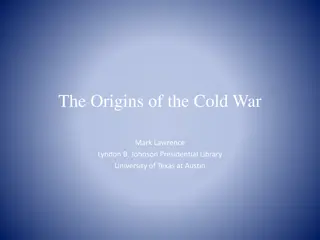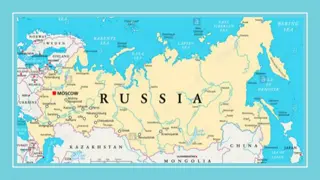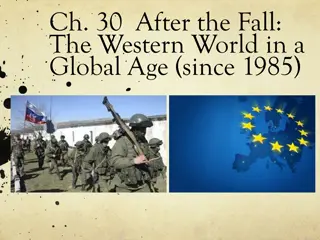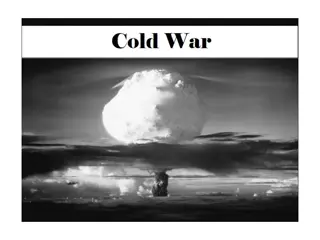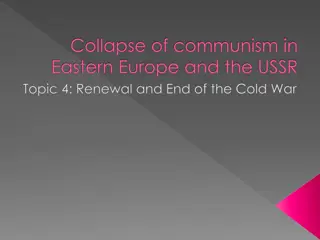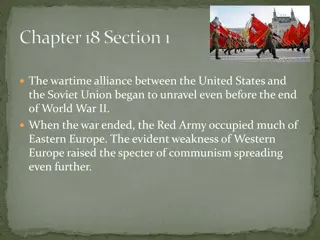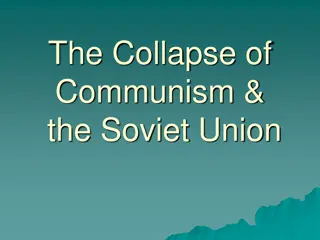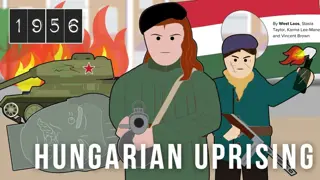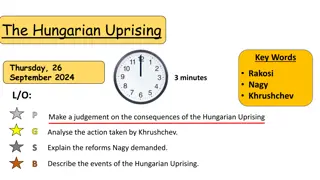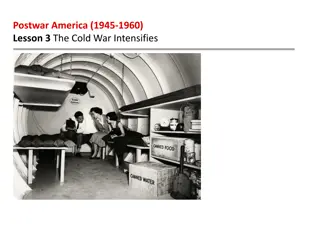Exploring Global Literary Radicalisms in the Soviet Era
The passage delves into the life of Margulies, detailing his meticulous routine and contemplation of time in the Soviet context. It reflects on themes of industrial progress, historical backwardness, and the intertwining of time and life. Additionally, it references Stalin's vision for economic advancement and features an excerpt from Miles M. Sherover's work on Soviet labor in Magnitogorsk.
Download Presentation

Please find below an Image/Link to download the presentation.
The content on the website is provided AS IS for your information and personal use only. It may not be sold, licensed, or shared on other websites without obtaining consent from the author. Download presentation by click this link. If you encounter any issues during the download, it is possible that the publisher has removed the file from their server.
E N D
Presentation Transcript
Global Literary Radicalisms Week 1 Time, Forward!
The first chapter is omitted for the time being. II The alarm clock rattled like a tin of bonbons. The alarm clock was cheap, painted, brown, of Soviet manufacture. Half-past six. The clock was accurate, but Margulies did not depend on it. He was not asleep. He always rose at six and was always ahead of time. There had never yet been an occasion when the alarm clock had actually awakened him Margulies could not really have faith in so simple a mechanism as a timepiece; could not entrust to it so precious a thing as time. Three hundred and six divided by eight. Then sixty divided by thirty-eight and two tenths. Margulies calculated this in his mind instantly. The result - one and approximately five-tenths. The figures had the follow significance. Three hundred and six was the number of mixtures. Eight was the number of working hours. Sixty was the number of minutes in an hour. Thus the concrete mixers of Kharkov made one mixture in one and approximately five-tenths of a minute ,that is, in ninety seconds. From these ninety seconds deduct the sixty seconds of compulsory minimum necessary for each mixture. According to the book of instructions. There remained thirty seconds. Thirty seconds in which to wheel up the material, to load, and to life the scoop! Theoretically it was possible. But practically? That was the question that had to be answered. (3)
To lower the tempos means to fall back, and those who fall back are beaten. But we do not want to be beaten. No, we will not have it. This was the history of old Russia: it was continually beaten because of backwardness [ ] industrial backwardness, agricultural backwardness [ ] we cannot be backward anymore The train was flying [ ] The train leaped like a ramrod from the gun-barrel of the tunnel (12-13 quote from Stalin in an economic life journal) Until now, life had gone by like a river, from backwater to backwater, from lake to lake. Time was life. Life flowed as wished. When it wished, it flowed slowly. When it wished, it flowed swiftly. Now Ishchenko opened his eyes, and, for the first time in his life, looked down the entire length of time. It flowed too slowly. But it flowed for him. The past flowed for the future. And it lay securely in his hands. Oh, how good life was, after all! (39)
Miles M. Sherover, "Magnitogorsk: Epic of Soviet Labor." Current History, vol. 36, no. 4, 07, 1932, pp. 405-410. ProQuest,
The dull snow, soiled with soot, flowed into the pile of wood. There had been no antennae over the attics. There had seemed to be many more churches, and actually there had been many more of them then[ ] Every quarter of an hour, day and night, it spoke the chromatic language of chiming bells. Like a boyar in a high sable hat, it walked the length of the Kremlin wall, amidst patriotic decorations [ ] But how Moscow had changed since those vanished days! (105-6) Blazing cauldrons of tar. They belched heat, stung the eye. The repair work had made a purgatory of Moscow. Streetcar routes changed daily. Katya was waiting for A. It did not come. Instead of A altogether unsuitable, fantastic letters and numbers passed along the steamy, mirror-like river. IT was something like a confused game of lotto (107)
I invest my money in the construction of this Babylon. It is profitable and absolutely safe. He implied that he was one of the largest stock-holders of the construction company which had undertaken the building of this factory. Thus I am helping to build Babylon, so that later I may have the satisfaction of blowing it up .with my books. Leonard, do you see the paradox [ ] There is a dialectic in this (328)
Comrade Stalin has called our writers engineers of human souls. What does this mean? What duties does the title confer upon you? In the first place, it means knowing life so as to be able to depict it truthfully in works of art, not to depict it in a dead, scholastic way, not simply as objective reality, but to depict reality in its revolutionary development. -AA Zhdanov Soviet Literature - The Richest in Ideas, the Most Advanced Literature, Soviet Writers Congress 1934 https://www.marxists.org/subject/art/lit_crit/sovie twritercongress/zdhanov.htm
According to the Leninist model for historical progress, society from its earliest days has been locked in a dialectical struggle between the forces of spontaneity (which predominate in the earliest, most primitive social forms) and the forces of consciousness (which are present from the very beginning, although largely only as a potential). This dialectic provides the driving force of progress and leads to history's end in communism. It affects a series of increasingly higher-order syntheses ( leaps. forward, or revolutions) resulting in ever-higher forms of both spontaneity and consciousness. The ultimate stage of historical development, communism, is reached in a final synthesis, which resolves the dialectic once and for all. That final synthesis or ultimate revolution will result in the triumph of "consciousness, but the form of "consciousness" will then be such that it will no longer be in opposition to spontaneity ; there will no longer be conflict between the natural responses of the people and the best interests of society. In other words, the end synthesis will resolve the age-old conflict between the individual and society. The task of literature as a generator of official myths is to provide object lessons in the working- out of the spontaneity /consciousness dialectic. Katarina Clark, Soviet Novel: History as Ritual, 16
When later generations remembered the October Revolution, it was Eisenstein s images they had in mind. The particular characteristics of the screen as a cognitive organ enabled audiences to see the materiality not only of this new collective protagonist, but also of other ideal entities: the unity of the revolutionary people, the idea of international solidarity, the idea of the Soviet Union itself. [ .] Soviet collective identity, like the revolutionary mass, was a phenomenon that needed the cinema world to be perceived (Susan Buck Morss, Dreamworld and Catastrophe, 147)
And it is not for nothing that Gorky constantly repeats: Write the histories of factories and plants. Write the history of the Red Army. Create the history of the great Russian proletarian revolution which is a thousand, thousand times greater and more splendid than the great French revolution. May not a single trifle, not even the smallest detail of our inimitable, heroic days of the first Five-Year Plan be forgotten!
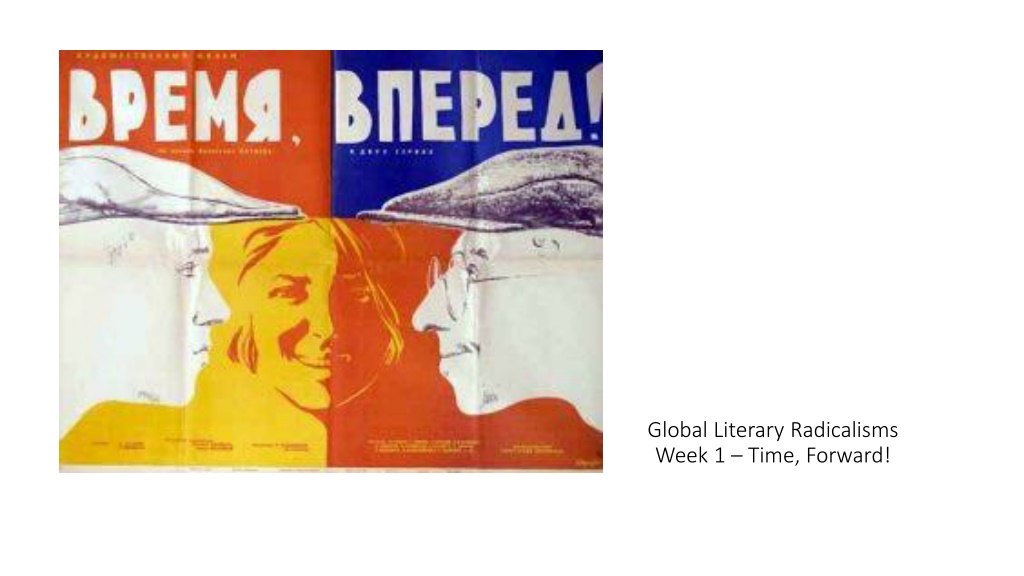

![[PDF⚡READ❤ONLINE] Energiya-Buran: The Soviet Space Shuttle (Springer Praxis Book](/thumb/21613/pdf-read-online-energiya-buran-the-soviet-space-shuttle-springer-praxis-book.jpg)



